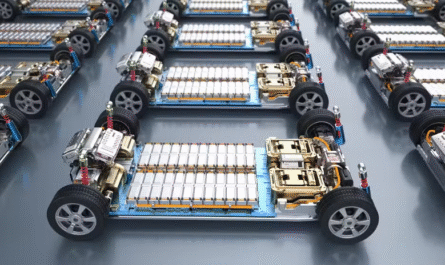Islamabad is set to witness a major development in its healthcare infrastructure as the government has announced plans to establish a state-of-the-art hospital in the capital at a staggering cost of over Rs. 210 billion. This project, one of the largest healthcare investments in Pakistan’s history, aims to address the growing demand for advanced medical services, reduce the burden on existing hospitals, and bring world-class healthcare facilities closer to citizens.
A Landmark Healthcare Project
The proposed hospital will be among the largest and most modern healthcare facilities in Pakistan. Planned to be built with the latest design and technology standards, the project is expected to:
- Provide specialized medical care across a wide range of disciplines including cardiology, oncology, neurology, organ transplants, and trauma care.
- Feature cutting-edge diagnostic equipment and research facilities.
- Include teaching and training facilities to produce highly skilled doctors, nurses, and healthcare professionals.
- Offer a patient-friendly environment with advanced management systems, ensuring efficiency and transparency in medical services.
By investing over Rs. 210 billion, the government is signaling its intent to bring Pakistan’s healthcare system closer to international standards.
Why Islamabad Needs a Modern Hospital
Islamabad, despite being the federal capital, has long struggled with inadequate healthcare facilities compared to the city’s growing population. While Pakistan Institute of Medical Sciences (PIMS) and a few other public and private hospitals cater to the city’s needs, they are often overwhelmed by the large number of patients—many of whom travel from other parts of the country seeking better treatment.
Key reasons why this hospital is needed include:
- Overburdened facilities: Existing hospitals frequently face overcrowding, long waiting times, and limited capacity.
- Medical tourism abroad: Thousands of Pakistanis travel overseas each year for advanced medical treatments, costing billions in foreign exchange.
- Population growth: Islamabad’s population has expanded rapidly in the last two decades, creating a greater demand for healthcare.
- Regional healthcare hub: The new hospital could also serve patients from nearby regions, reducing pressure on hospitals in Rawalpindi, Punjab, and Khyber Pakhtunkhwa.
Features and Facilities
Though detailed designs are yet to be finalized, the new hospital is expected to include:
- Over 1,500 beds for in-patients.
- Multiple specialized centers for cancer treatment, cardiac surgery, organ transplantation, and advanced surgeries.
- Emergency and trauma units with the latest technology to deal with accidents and natural disasters.
- Medical research facilities to promote innovation and local solutions in healthcare.
- Digital hospital management system, including electronic medical records, smart appointment systems, and patient-tracking mechanisms.
Such features will not only improve healthcare quality but also introduce efficiency and reduce corruption and mismanagement in the health sector.
Economic and Social Impact
The construction and operation of this mega-hospital are expected to create thousands of jobs in both the short and long term. From engineers and architects during construction to doctors, nurses, and technicians after completion, the project will generate employment opportunities for a wide spectrum of professionals.
Moreover, by providing affordable and quality healthcare, the hospital will directly benefit low- and middle-income families who currently struggle with the high cost of private treatment.
The project could also reduce the need for Pakistanis to travel abroad for complex medical procedures, saving foreign reserves and keeping funds within the local economy.
Challenges Ahead
Despite the grand vision, several challenges need to be addressed to ensure the project’s success:
- Financing and sustainability: Managing over Rs. 210 billion effectively requires transparency and strict monitoring.
- Completion timelines: Large-scale projects in Pakistan often face delays; sticking to deadlines will be critical.
- Human resource development: To run such a massive facility, Pakistan will need to train thousands of doctors, nurses, and paramedics.
- Accessibility for all: The hospital must not turn into a facility accessible only to the elite; affordability and inclusivity are essential.
A Step Toward Modern Healthcare
The announcement of this modern hospital marks a bold step in Pakistan’s healthcare journey. If executed successfully, it could transform Islamabad into a medical hub, inspire similar projects in other provinces, and help elevate Pakistan’s healthcare sector to meet global standards.
This project is not just about bricks and mortar—it represents an investment in the health and future of the nation. A modern, well-equipped hospital in the heart of Pakistan’s capital can become a symbol of progress, ensuring that citizens have access to the care they deserve without having to look abroad.



